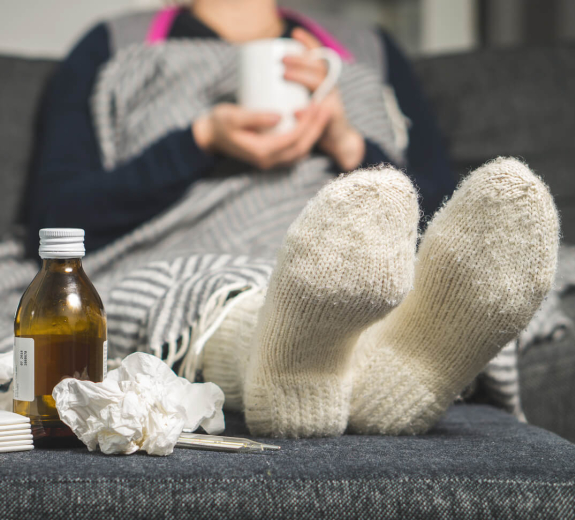What exactly is a “bad” flu season?
The pandemic has made people more familiar with how viruses spread and cause illness. We know all too well that some virus strains may be more contagious and the same strain might impact different people in different ways. So, what does a “bad” flu season actually mean?
“A bad flu season could be a year with many cases of the flu, a strain of the flu that causes more severe illness or a combination of both,” Dr. Malhotra says.
Why might this year’s flu season be worse than usual?
As the pandemic settles, social restrictions are being eased and folks are letting go of their masks. This poses a risk for transmission of other respiratory viruses, such as influenza. One possible scenario is that since there wasn’t much influenza activity last year, people’s immune systems won’t be as primed and ready to fight off the flu when they come into contact with the virus again. When the flu circulates regularly and you get your annual flu shot, your body builds up immune cells to fight the flu. But if the body doesn’t see the flu, immune cells that are generated to fight it off can fade over time.
“We might see more severe illness in the community because there's lower immunity in the population, especially among those who are unvaccinated against the flu,” Dr. Malhotra says.
How will flu season impact the ongoing fight against COVID-19?
For the past year and a half, we’ve seen high rates of COVID-19 pushing hospitals to capacity and beyond. A bad flu year can also fill up hospital beds and put a strain on the healthcare system.
“There have been many years in the past when flu season is very severe and it causes a great burden on hospitals,” Dr. Malhotra says. “Our hospitals have been overburdened with COVID-19 cases and we want to do everything we can to keep flu cases from adding to that stress or having simultaneous peaks in COVID-19 cases and flu cases — that would be very problematic.”




